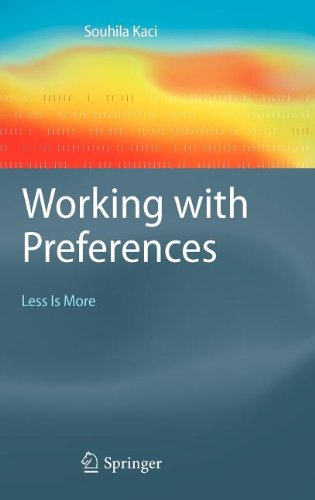

Most ebook files are in PDF format, so you can easily read them using various software such as Foxit Reader or directly on the Google Chrome browser.
Some ebook files are released by publishers in other formats such as .awz, .mobi, .epub, .fb2, etc. You may need to install specific software to read these formats on mobile/PC, such as Calibre.
Please read the tutorial at this link: https://ebookbell.com/faq
We offer FREE conversion to the popular formats you request; however, this may take some time. Therefore, right after payment, please email us, and we will try to provide the service as quickly as possible.
For some exceptional file formats or broken links (if any), please refrain from opening any disputes. Instead, email us first, and we will try to assist within a maximum of 6 hours.
EbookBell Team

4.0
56 reviewsPreferences are useful in many real-life problems, guiding human decision making from early childhood up to complex professional and organizational decisions. In artificial intelligence specifically, preferences is a relatively new topic of relevance to nonmonotonic reasoning, multiagent systems, constraint satisfaction, decision making, social choice theory and decision-theoretic planning
The first part of this book deals with preference representation, with specific chapters dedicated to representation languages, nonmonotonic logics of preferences, conditional preference networks, positive and negative preferences, and the study of preferences in cognitive psychology. The second part of the book deals with reasoning with preferences, and includes chapters dedicated to preference-based argumentation, preferences database queries, and rank-ordering outcomes and intervals. The author concludes by examining forthcoming research perspectives.
This is inherently a multidisciplinary topic and this book will be of interest to computer scientists, economists, operations researchers, mathematicians, logicians, philosophers and psychologists.